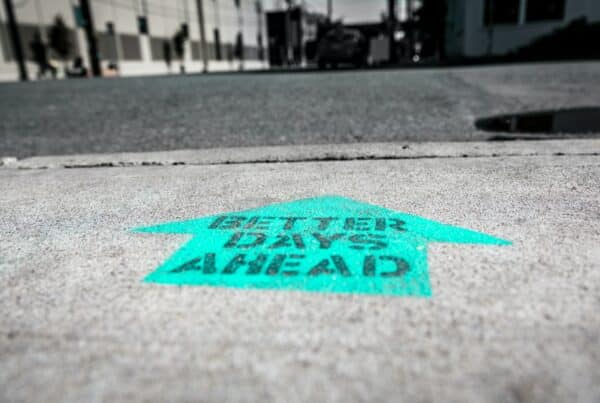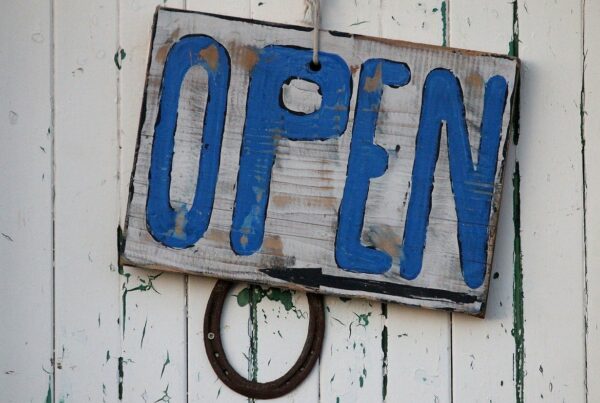What are the top emotions that keep you broke? Read on to find out.
Have you ever wondered, “What are the top emotions that keep you broke?” I sure have, and it all started back when I went broke myself. Yes, that’s right – I had to hit rock bottom myself before I could develop Money Detox, which is the ultimate cure for Money Shame. In turn, it’s also the ultimate cure for those pesky emotions that keep you broke!
You should note that Money Detox is more than just a rote process; it’s a long and hard journey of emotional healing, but also a necessary prerequisite to “jumping back on the horse” with a budget and financial plan.
Too many people skip this all-important step of emotional healing, and instead try to go straight into hardcore budgeting or reworking their investment portfolio. But this always fails if those top emotions that keep you broke are still lurking beneath the surface, unhealed and continuing to undermine your financial goals.
Long story short, if you don’t first address those very serious emotions that control you — and in turn, your spending and financial decisions — you will be destined to continue repeating the same cycles of overspending and getting bogged down in Money Shame.
Emotions keep you broke because they shape your perceptions about money.

But some emotions cause us to spend in a way that is out of balance with our wellbeing. We start thinking too much about other people’s perception of us. We may spend money we don’t have to chase a high or to impress people, but you can’t buy genuine connection or belonging.
Marketers know that emotional spending is big money. Everywhere you turn, there are targeted pop-up ads for products designed to help you attract a partner, impress your friends, or stay entertained.
Even if you don’t struggle with gambling addiction or have a tendency towards codependence, some unchecked, everyday emotions can be dangerous to your financial health. I want to talk about how we let these emotions play out, even when we know we will regret it later.
If you have ever felt out of control with your spending, or doomed to make poor decisions with your money, some of these scenarios may be familiar.
“I’ll have what she’s having” – Not so fast!
The green-eyed monster, keeping up with the Joneses—however you say it, jealousy has been around since the time of “coveting thy neighbor’s wife”, and caused lots of unnecessary heartaches (and debts) by distracting us from the abundance already in our lives.
It’s natural to compare ourselves and what we have to those around us—a peek at instagram shows that. But if you find social media or your friendships leave you in a constant state of ennui, your admiration may have turned into something more sinister.
For example, your coworker pulls up in a new car. It is gleaming, parked next to your old one. It has cooling seats…you have always wanted those. Sitting at your desk a couple hours later, you find yourself absentmindedly browsing new cars online.
But before you run out and sign up for another monthly payment, check in with yourself. Were you already planning to make a similar purchase before those leather seats caught your eye? What do you picture in your mind when you see yourself in this car? Does your neighbor look at you differently—the smell of success! You are turning heads. You can picture your sister’s jaw dropping.
I feel like there is a caveat…
Buying things to impress others is a fleeting sensation…with a long-term payment. Talk about letting an emotion keep you broke!
If you are in the market for an upgrade and not just a confidence boost, use these feelings as a kick in the pants to come up with a plan to buy it. Turn your longing into motivation to raise that money instead of defaulting to taking on a monthly payment. Consider how you can bring in a little extra income, and where you can cut back. If you have something you can sell to help you reach your goal, even better.
The idea is not to deny your wants, but to find a way to make them work within your adult limits. Just as you wouldn’t buy a kid everything they ask for, you have to set boundaries within your income to prioritize and enjoy the things you want.
Saving for a big expense has major benefits:
Let’s run with the car example. Saving for a big expense instead of running out to get a car loan has major benefits:
- If you have enough discipline to save for the car, you really need it or want it enough to prioritize it over other spending.
- It won’t be instantaneous, so the voice that screams NOW will have time to calm down and reflect. You may decide you are just as happy with a great deal on a used car or, at least, you will have time to shop for a deal on the new one.
- Paying cash is going to give you more leverage and a better deal.
- Also, once you save the money, whether from a side hustle, over time, or setting aside money each month, the purchase will not become a drag on your budget months after the new car smell wears off. You can enjoy it without that nagging feeling that you can’t truly afford it.
Emotions keeping you broke… Who, me?
Avoidance or denial is another emotional state that takes a toll on our finances.
Impulse spending falls in this category. You get your credit card bill at the end of the month and you are shocked at the balance, but then you haven’t really denied yourself anything, especially last week when you were feeling down and decided a shopping spree would make you feel better.
Another form of denial could be actively ignoring bills or calls from debt collectors. You may have reached the point where you don’t want to deal with spending that you know has gone off the rails, so you just stop responding. This is yet another one of the top emotions that keep you broke!
But you can’t really escape them, because you know your relationship with money is not going away. And just getting through each month without a plan to address debt and saving is not doing your credit score any favors.
Another way you can exercise denial is when you procrastinate coming up with a budget or saving for your retirement or other big goals because that feels far away or out of reach.
Many people are in denial about wiggle room in their budget. You know that to make a budget you will have to cut out some of your fun spending, and who wants to do that? You’ll do it next month.
I neeeeed my freedom!
The actual exercise of cleaning up your spending is usually not as bad as you have built it up to be. It helps to do this with someone. A trusted advisor or a parent or sibling who is good with money. We avoid this because we know we have to get honest about our spending, which can be embarrassing or uncomfortable. But this embarrassment is just another top emotion that keeps you broke!
The first step is to keep track of everything you are spending in a given month. When you know you spend your lunch break escaping the office by shopping at Ulta, you may be hesitant to share this with someone else or even see it on paper because it means you’ll have to make some changes. You may feel a little foolish. But managing your money isn’t a punishment!
Start watching your money.
Seeing exactly where your money is going month to month puts you in control of how you want to spend.
It’s easy to feel overwhelmed by restricting our spending when you don’t really know where the money is going. And often we get to this state, because we don’t want to know how bad it is. By tracking your spending, you can quickly put most of your expenses into categories, like eating out, clothing, electronics, entertainment.
You may be amazed by how a few small changes can have a big impact on reducing your debt. People think budgeting signals the end of their freedom, but often find that doing the work brings them so much relief. It can be really eye-opening to see how much you are spending in one category as a percentage of your total income. You may realize that small changes, like eating dinner at home a few more times a week, can save you a lot of money without a lot of extra effort. All of a sudden, you free up extra income that can be used to save for something you really want, guilt-free.
What if I feel like I can’t do anything right?
The other emotion that hinders our financial health is shame. Many people with poor spending may argue that they feel “guilt” when they buy something they can’t really afford.
I would argue that money shame is more common and more powerful than guilt. Money shame is an intensely painful feeling that we are flawed and unworthy of love. It says our acceptance is based on our bank account balance. It says we “are” our homes, what we drive, and our job title.
Tammy, you say, that’s pretty heavy.
It’s easy to minimize the hurt, to say we are just behind on some payments, and we feel a little guilty about that trip we just went on with friends that we couldn’t really afford. But money shame is the reason why we keep up the fissade. We feel powerless to change, because we have convinced ourselves that we cannot.
Psychology and Emotion: Money shame can affect us in different ways
You may not know where your next credit card payment is going to come from. But you just offered to buy dinner for everyone tonight. You signed up for one more activity for the kids. You’re praying you can get through a few lessons before your card is denied. These are great examples of the top emotions that keep you broke!
But at the same time, it doesn’t stop there. On the other hand, maybe you are in fact ashamed of how much money you make or feel like you shouldn’t make more than a close friend or family member. You may even sabotage your income when you feel it is more than you deserve because you are uncomfortable with how a higher net worth will be perceived in your social circle. You believe others will withhold acceptance or think you are trying to put them down.
Maybe money shame manifests itself in your household when you are scared to spend money because you don’t trust yourself to hold onto it. You feel like you were just lucky and luck can run out. You’ve been in a position where you lost it all before, and you can’t be comfortable now.
Feelings of inadequacy
The difference between guilt and shame is that shame is rooted in feelings of inadequacy. There is something wrong with me that I cannot manage or I do not deserve money.
Out of control spending is not glamorous. It is not something you have to continue just because you have been reckless in the past.
On the flip side, not being able to enjoy or share money is not any way to live.
Your money is not your worth. You can have control over your spending. But first, you need to do the work and find out why you believe your “money stories.” These are the things we tell ourselves about money. Specifically, the reasons we believe we can’t handle money.
My life’s privilege is to help people escape the patterns they fall prey to with money. I recognize these patterns because they are both my lived experience and the stories I hear over and over again. Check out this article on money saboteurs and see if you identify with any of these types. While we are all unique, we avoid seeking help for the same reason—because we believe we are broken. But your past is not your fault, and always there is a way to come back to your worth and reshape your future relationship with money.
Mental Illness and Money Problems: When emotions really keep you broke.
I would be remiss to leave out mental illness as a huge obstacle to managing money. Talk about top emotions that keep you broke! Imagine being trapped in a cycle of mental and emotional pain that’s not only hard, but also genuinely out of your control to one degree or another.
True mental illness impacts financial health in a myriad of ways, and in doing my research on this, I was surprised by how much material showed up from studies in the United Kingdom and Canada, but not as much from the USA. Of course there is a stigma in both talking about mental illness and money, much less the two together. One British study reported that people who suffer from anxiety, depression and substance abuse patterns are more than three and a half times more likely to have financial troubles than their healthy counterparts.
It’s a self-perpetuating cycle; these disorders lend themselves to practical difficulties when it comes to finances. For example, someone with anxiety is more likely to be overwhelmed or unable to focus on managing your bills. And panic attacks or other symptoms may cause you to be out of work, possibly jeopardizing income and benefits that would help you manage your payments. Costly medical bills add to the stress and cause more anxiety.
I’ve been there—compounded by the fact that I knew I was good at money. I was the one in my family who had it all together! And yet, I reached a point where I was spiraling out of control with grief over my brother. I was also encountering aggravation with my business. Worse yet, I was facing an all-too familiar pattern of addiction that I had seen over and over in my close family.
The first step in confronting mental illness
The most important thing is to start by finding that person you can talk to. No matter how taboo you think it is to talk about money, letting it stew is a dangerous thing. Outside perspective can help. Believe it or not, someone else may not see the situation as dire as you do. A friend might be able to relate. That same friend may feel surprise if you feel the need to hide it from them. At the very least, they can help you find resources you need to start the climb out.
It doesn’t matter if that first person you talk to is a personal connection or a therapist or a coach. The important part is to come out of your head.
Sometimes you need help beyond a friend. If you have a gambling addiction or a bipolar manic disorder, you may need therapy and medicine. You have to address these underlying things before you can rebuild.
Create a Virtuous Emotional Cycle
Are you ready to tackle those top emotions that keep you broke? Whether you are sabotaging your savings goals because of unchecked jealousy, because you are putting off the steps you know you should take, or because you feel you are too flawed to handle money, the result can be the same. Today is the best time to start by taking one small step. It’s not your fault that you’ve dug yourself into a financial hole. They way you handle your money is a reflection of your upbringing, your parents’ values, and your environment. But if those stories no longer serve you…if you feel stuck, or trapped by your lifestyle and not sure how to keep the balls in the air, it’s not too late to change, and it may quite literally save your life.
Find that trusted friend or therapist. Join forces with people who will respect your journey and cheer you on. Get help if you think there might be a more serious, underlying problem with addiction or depression.
Being stuck in financial problems without a plan is a vicious cycle, but there is another side of the coin. Good habits also beget good habits. If you can find the confidence to turn money shame on its head, then you can begin a virtuous cycle. A cycle that will benefit not only your bank account, but your outlook and your mental health. There is no better feeling than looking at the future, and seeing only hope and security and options.
I’d love to be one of the people to help you find your way. Blessings!





